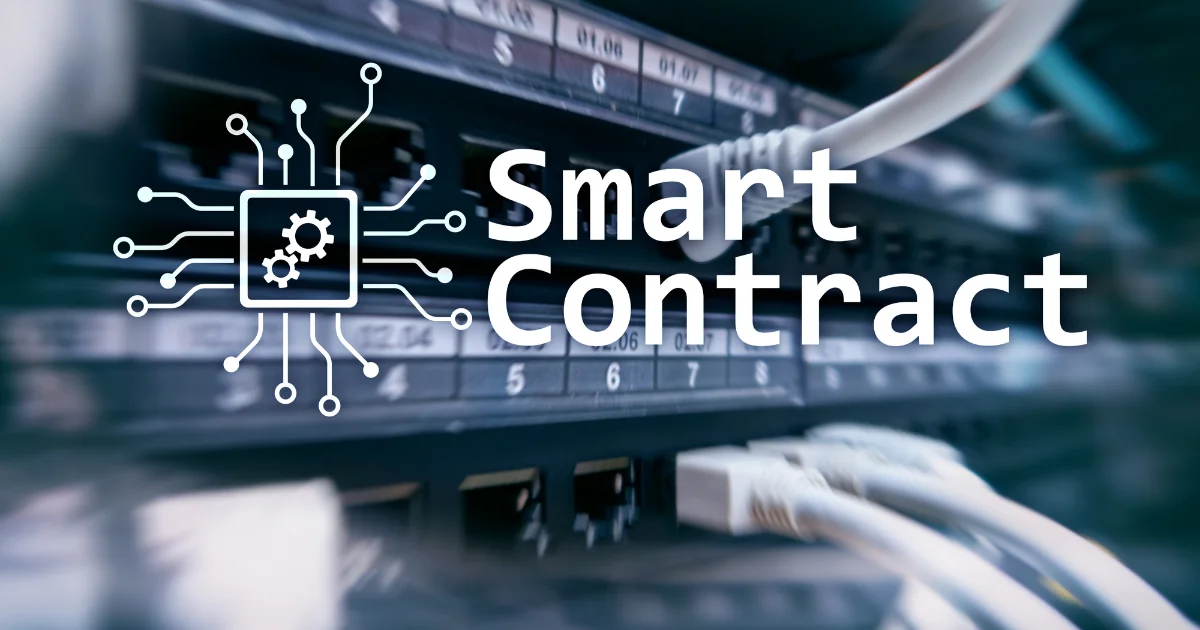In the ever-evolving landscape of blockchain technology, smart contracts have emerged as a transformative force, enabling trustless and automated execution of agreements. However, the integration of machine learning (ML) into smart contract development services is opening up new frontiers, propelling decentralized automation to unprecedented heights.
This article explores the symbiotic relationship between machine learning and smart contract development, delving into the synergies that are reshaping the future of decentralized applications (dApps).
Understanding Smart Contracts
Smart contracts are self-executing contracts with the terms of the agreement directly written into code. These contracts run on blockchain platforms like Ethereum, Binance Smart Chain, and others, ensuring transparency, security, and immutability.
They automatically enforce and execute the terms of an agreement when predefined conditions are met, eliminating the need for intermediaries and reducing the risk of fraud.
Challenges in Traditional Smart Contract Development
While traditional smart contracts provide a robust framework for decentralized applications, they face challenges in handling complex, dynamic, and unpredictable scenarios. Traditional contracts operate based on predefined rules, lacking the ability to adapt to changing conditions or learn from historical data.
This limitation hinders the potential for broader applications, particularly in areas requiring adaptive and intelligent decision-making.
Enter Machine Learning
Machine learning, a subset of artificial intelligence, equips systems with the ability to learn from data and improve their performance over time. By integrating machine learning algorithms into smart contract development, machine learning consultants can enhance the adaptability, autonomy, and intelligence of decentralized applications.
Related: Differences Between Artificial Intelligence, Machine Learning, and Deep Learning
Synergies Between Machine Learning and Smart Contracts
1. Adaptive Decision-Making
Traditional smart contracts are rigid, executing predefined actions based on specific conditions. Machine learning introduces adaptability, enabling smart contracts to learn from historical data and adjust their behavior accordingly. This is particularly valuable in scenarios where conditions are dynamic and subject to change.
2. Predictive Analytics
Machine learning algorithms excel at predictive analytics. When applied to smart contracts, these algorithms can analyze historical data to predict future events or trends. This predictive capability can be leveraged to optimize decision-making processes within smart contracts, enhancing efficiency and accuracy.
3. Risk Management
Smart contracts often involve financial transactions or the exchange of valuable assets. Machine learning can play a pivotal role in assessing and mitigating risks associated with these transactions. By analyzing patterns and anomalies in data, ML algorithms can identify potential fraudulent activities or high-risk transactions, enhancing the security of decentralized applications.
Also Read: Discover Online AI Tools to Do Almost Everything
4. Dynamic Pricing Models
In decentralized marketplaces, pricing models can be challenging to establish and maintain. Machine learning can assist in developing dynamic pricing models within smart contracts, adjusting prices based on real-time market conditions, demand-supply dynamics, and other relevant factors.
5. Tokenomics and Governance
Machine learning can be instrumental in designing and optimizing tokenomics within blockchain ecosystems. By analyzing user behavior and market trends, ML algorithms can provide insights that inform decisions related to token distribution, inflation, and governance protocols.
6. Automated Compliance
Compliance with regulatory requirements is a crucial aspect of many transactions. Machine learning can assist in automating compliance checks within smart contracts, ensuring that transactions adhere to legal and regulatory standards. This can be especially valuable in industries such as finance, where regulatory compliance is paramount.
7. Enhanced Security
Machine learning can bolster the security of smart contracts by continuously monitoring for potential vulnerabilities and identifying anomalous activities. This proactive approach to security can significantly reduce the risk of exploits or attacks, making decentralized applications more resilient.
Must Read: Free Image Generation APIs
So How ML Helps with Smart Contract Development
The connection between machine learning and smart contracts is ushering in a new era of decentralized automation. The synergies between these two technologies empower decentralized applications to adapt, learn, and evolve, making them more versatile and intelligent.
As the integration of machine learning continues to mature, the potential applications of smart contracts will expand, revolutionizing industries and reshaping the future of blockchain technology.
Developers, researchers, and industry stakeholders must collaborate to overcome challenges and unlock the full potential of this transformative synergy, ultimately contributing to the evolution of a more decentralized and intelligent digital ecosystem.






